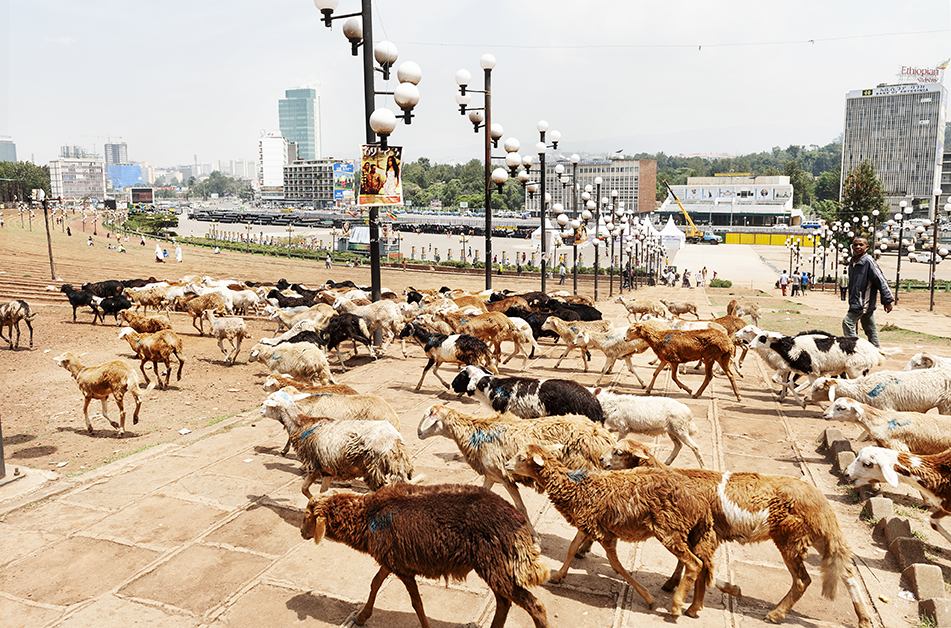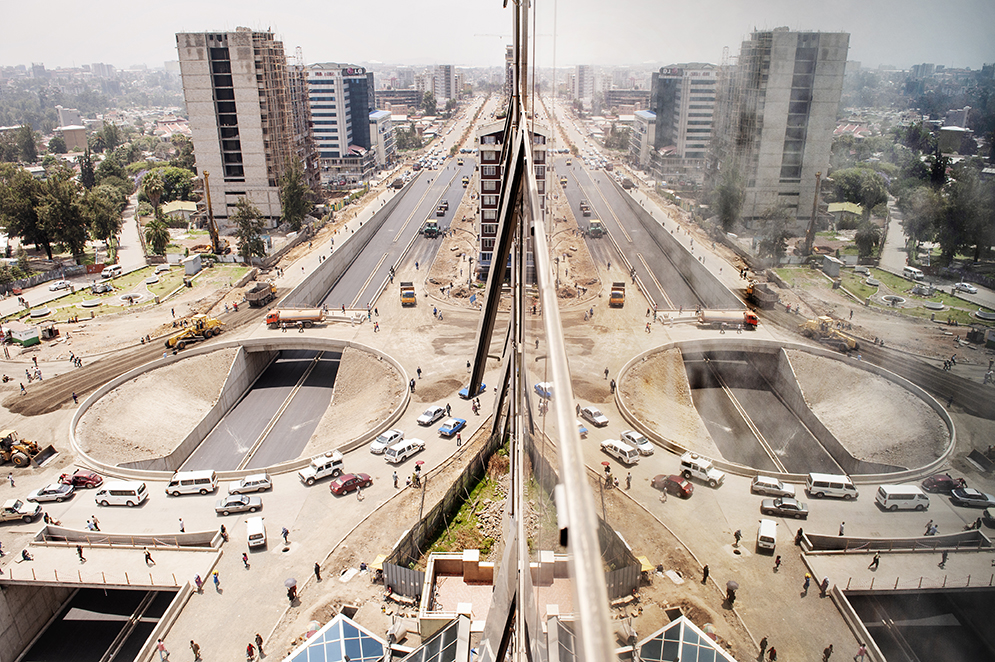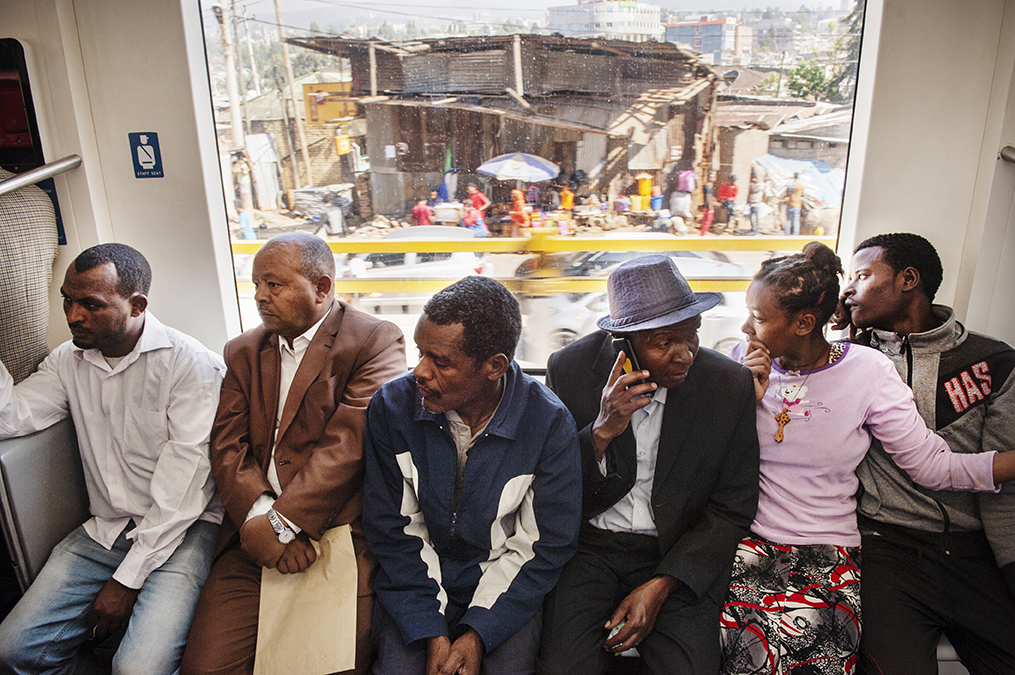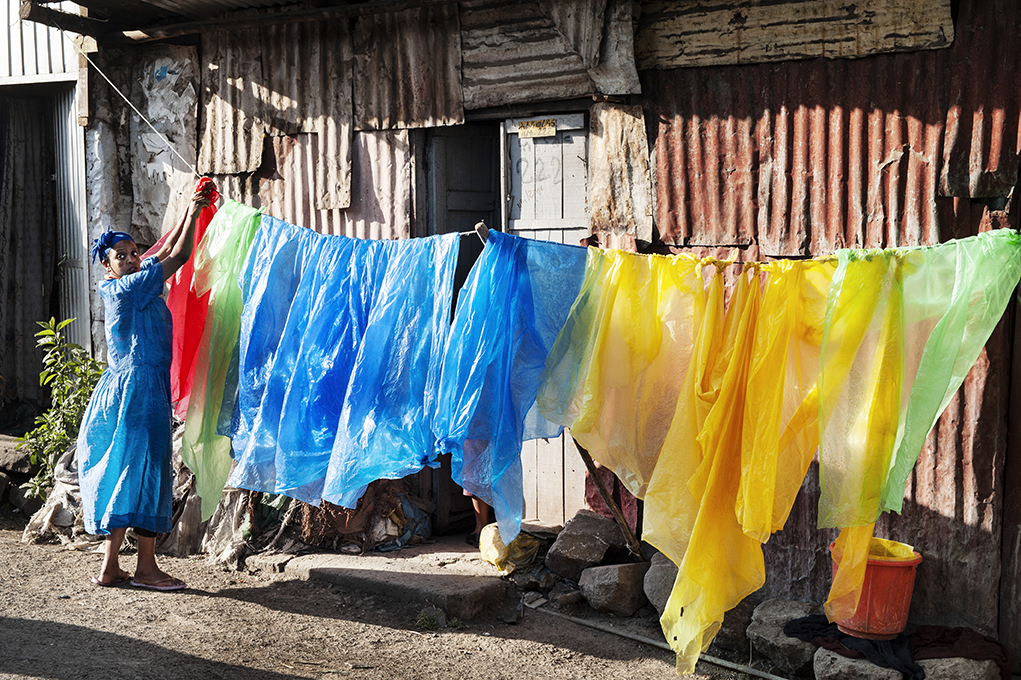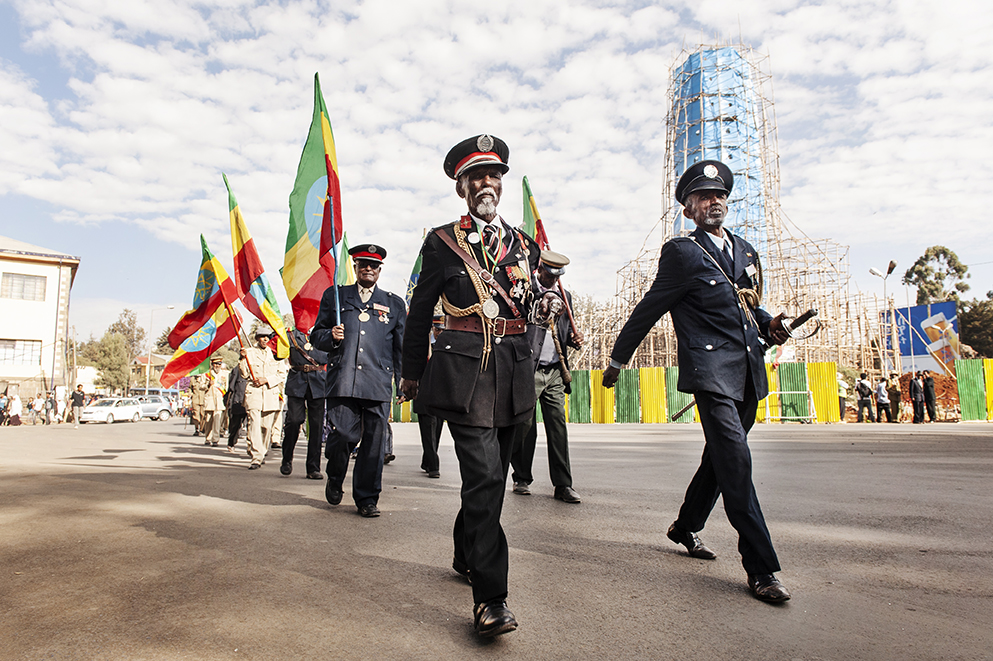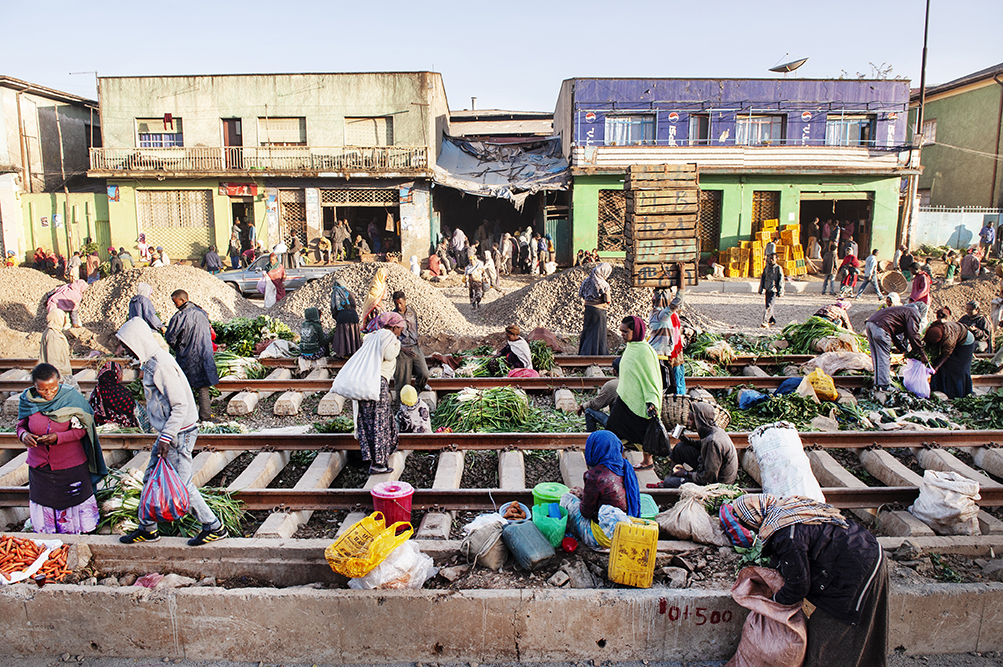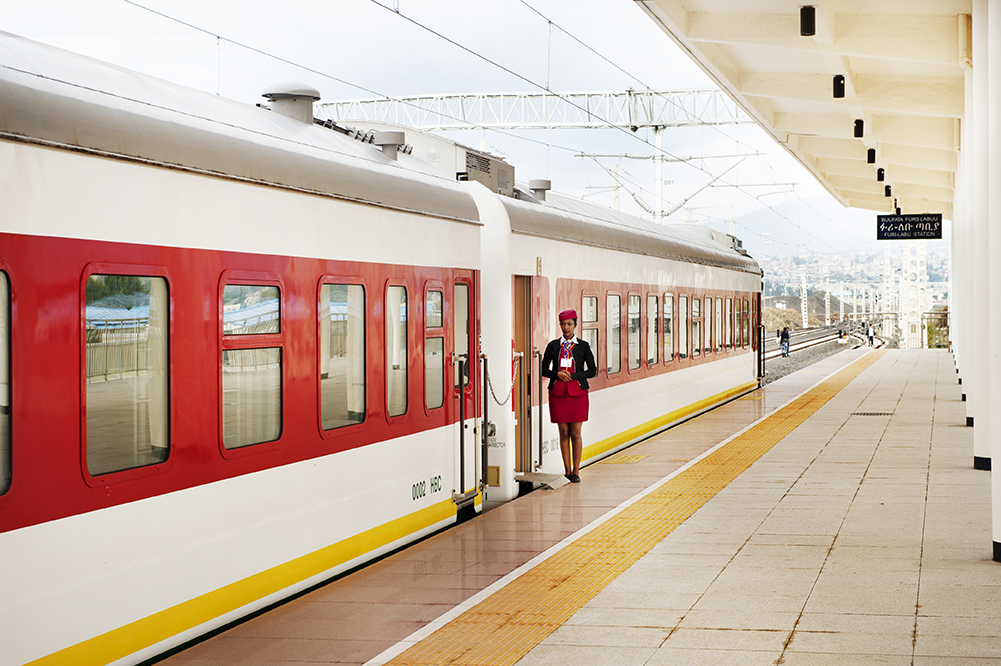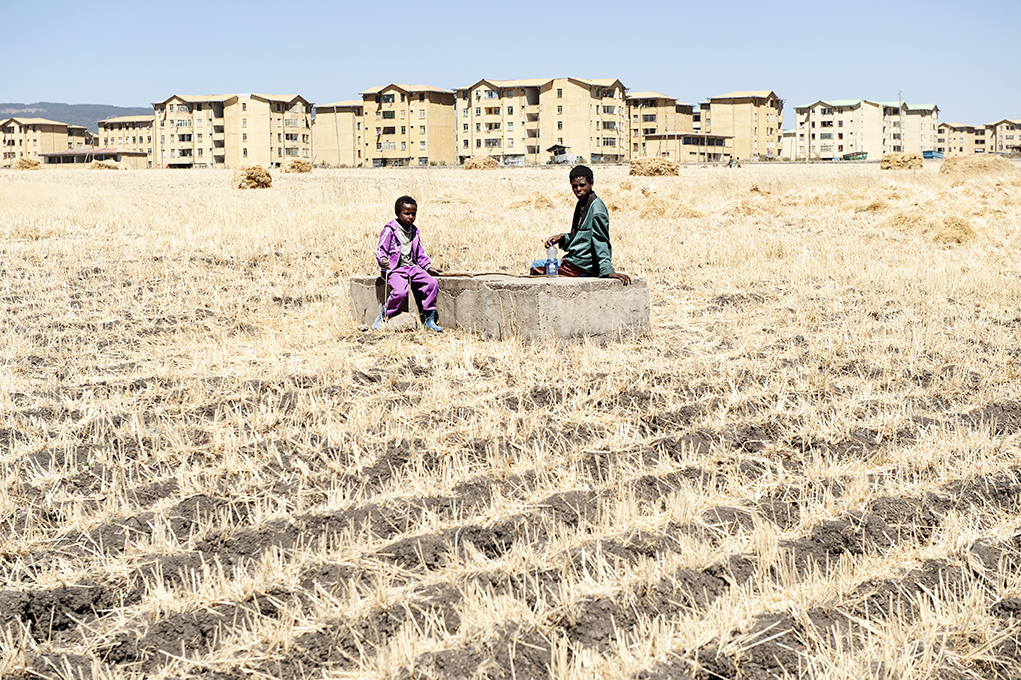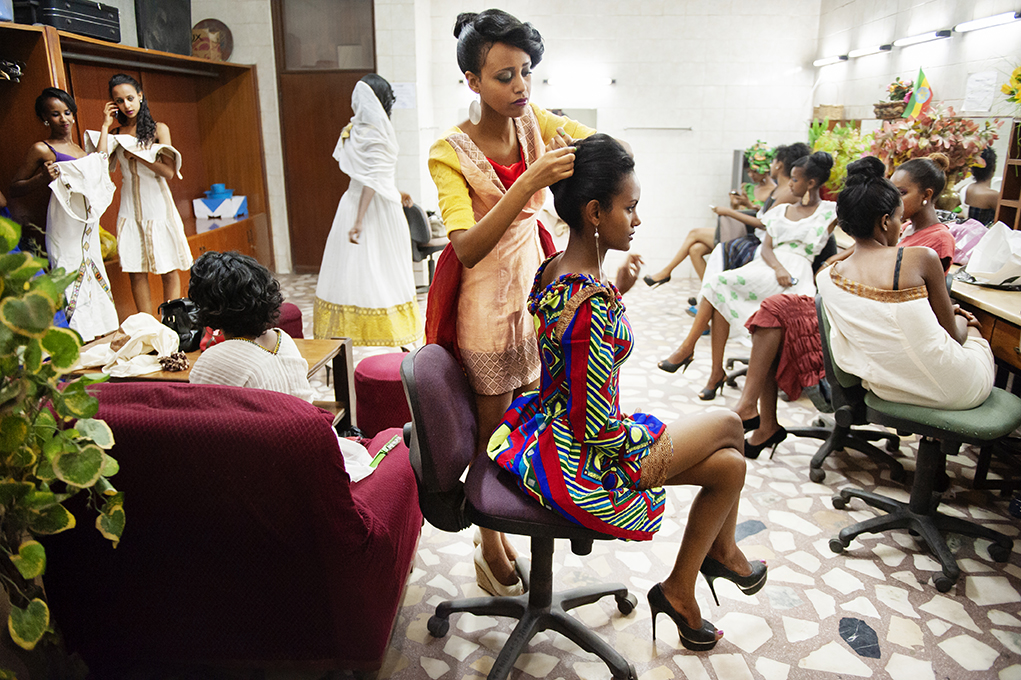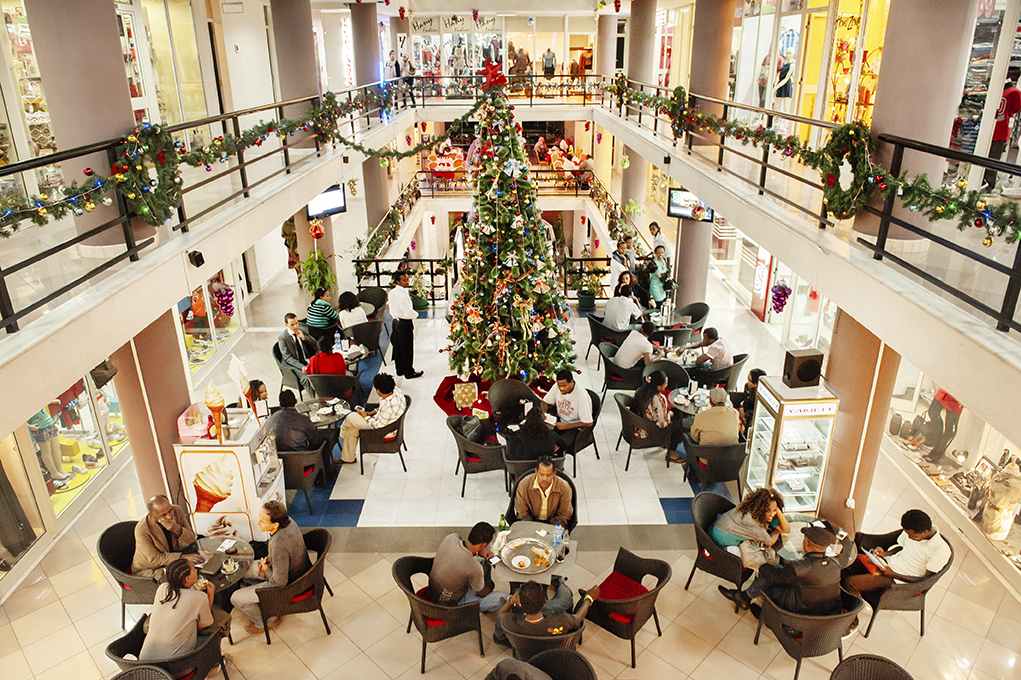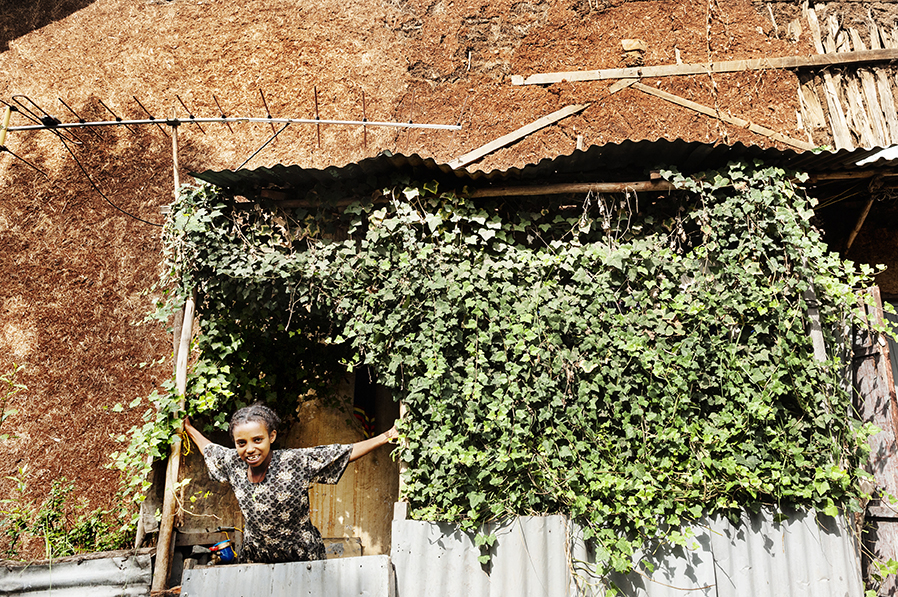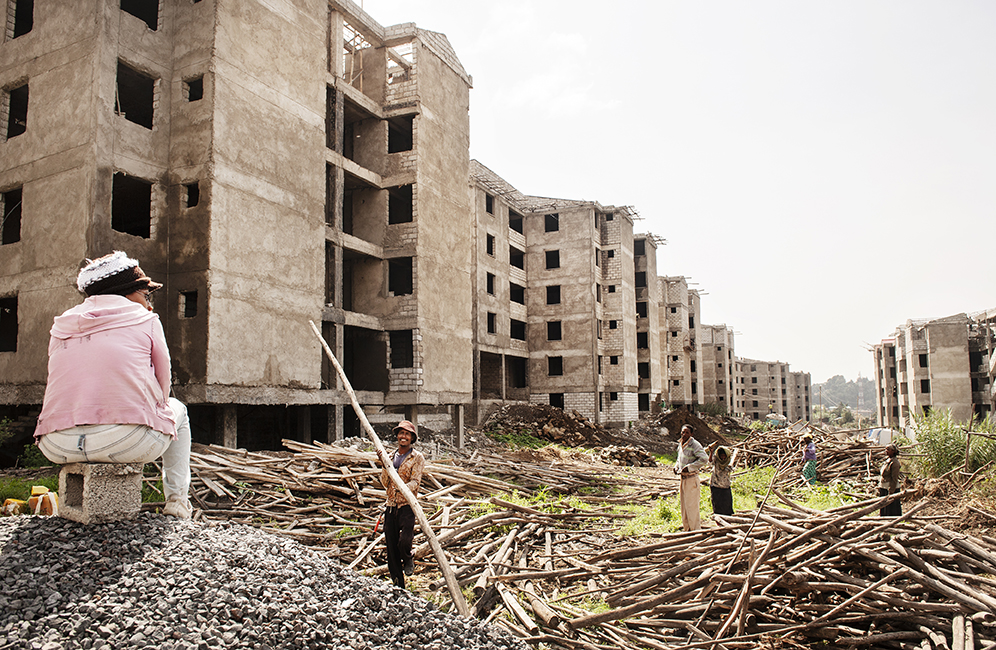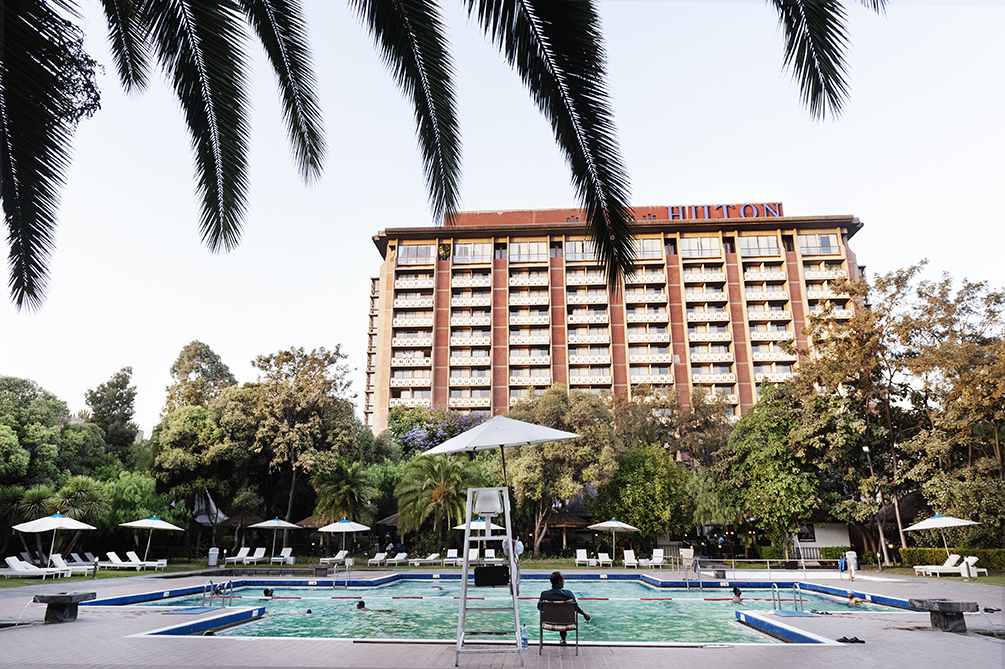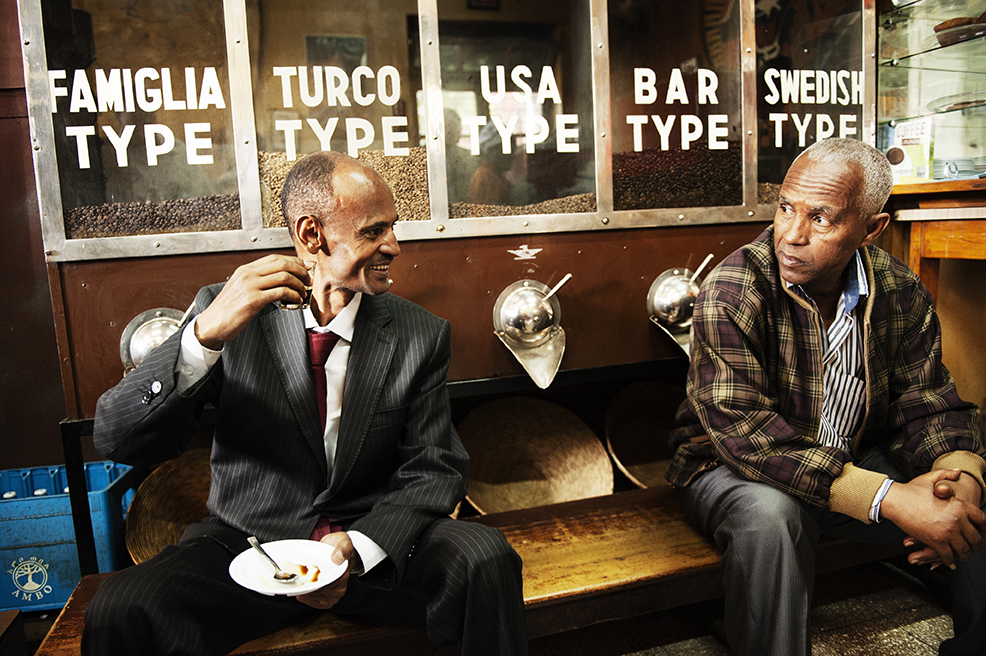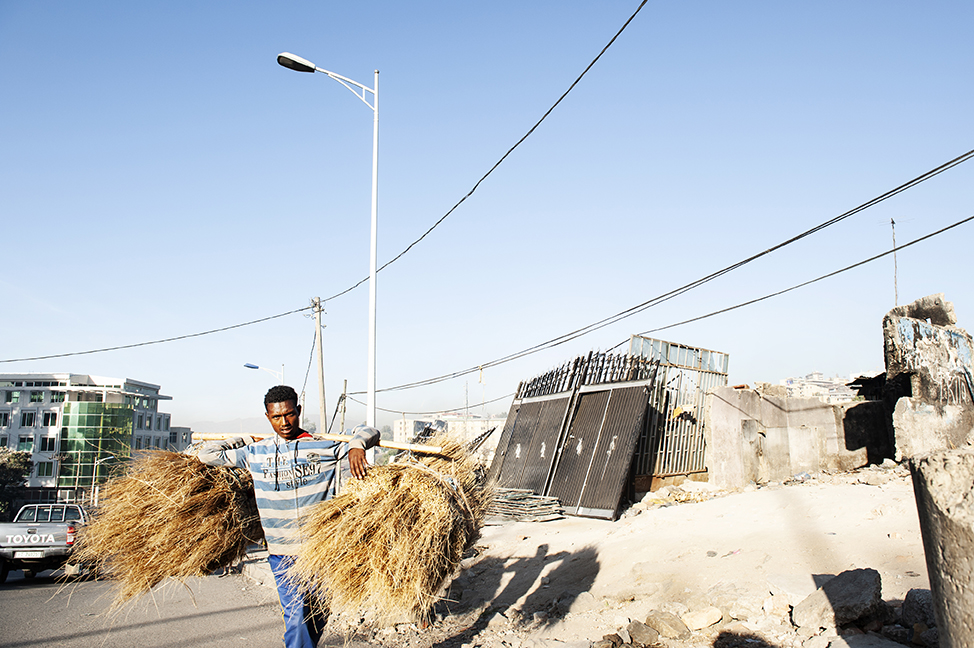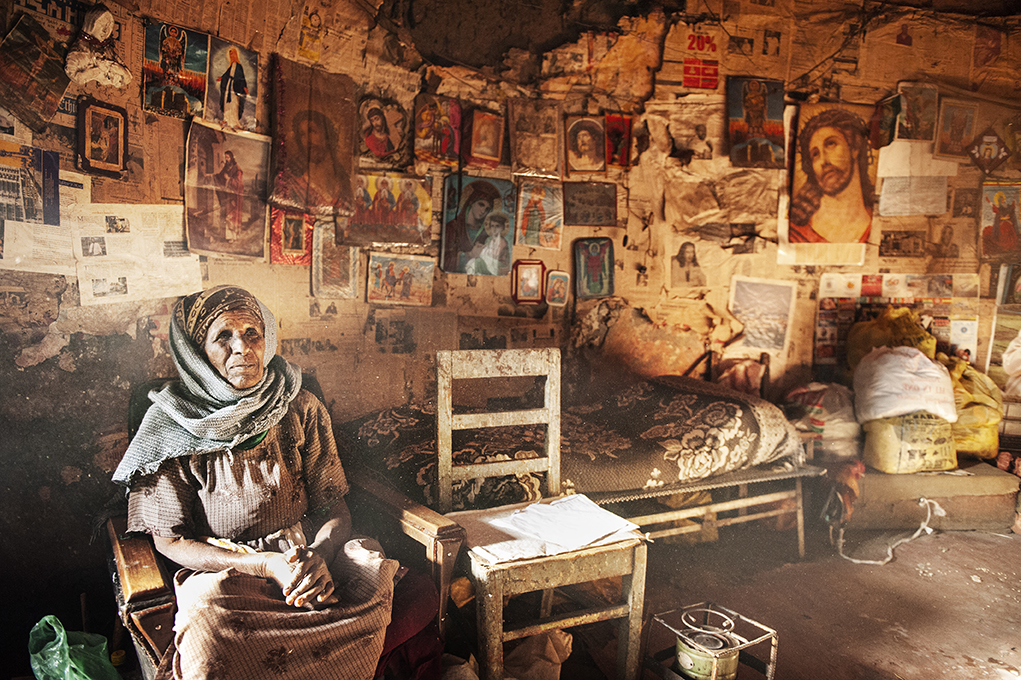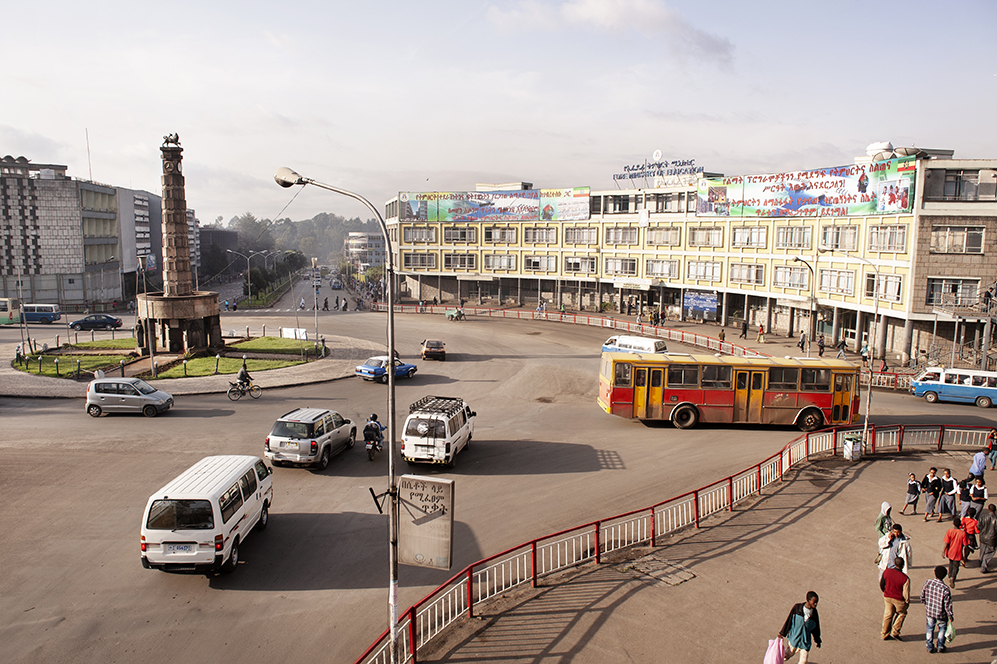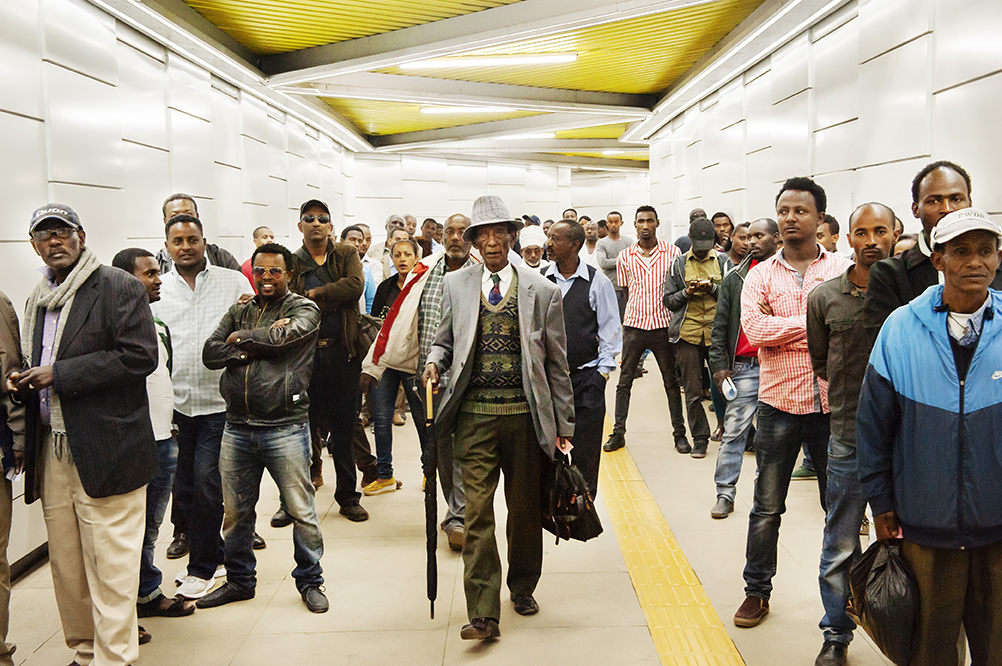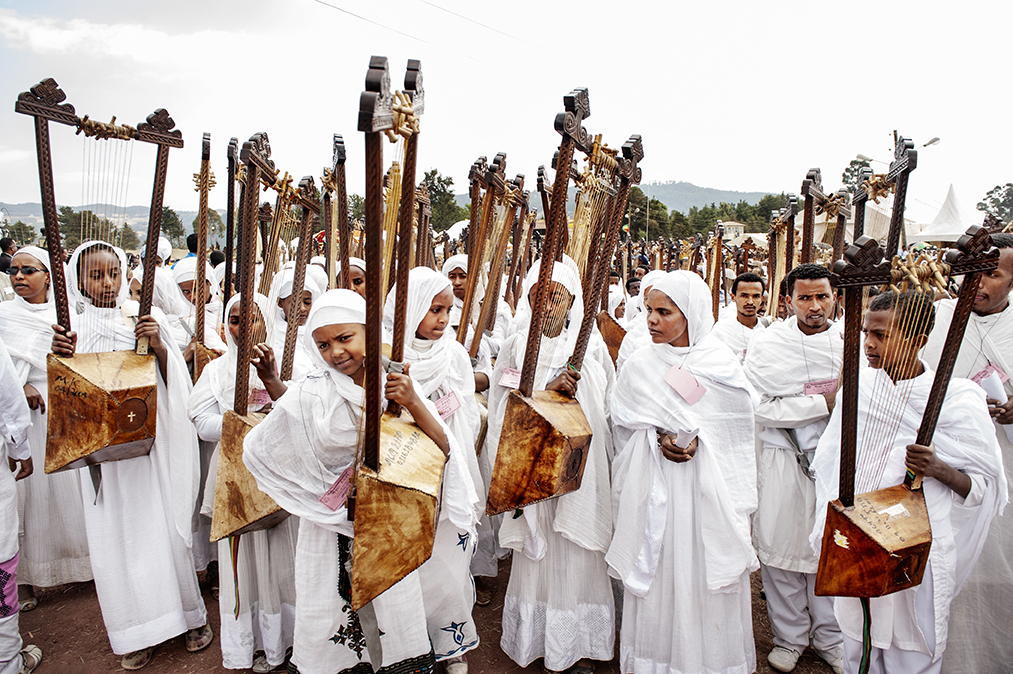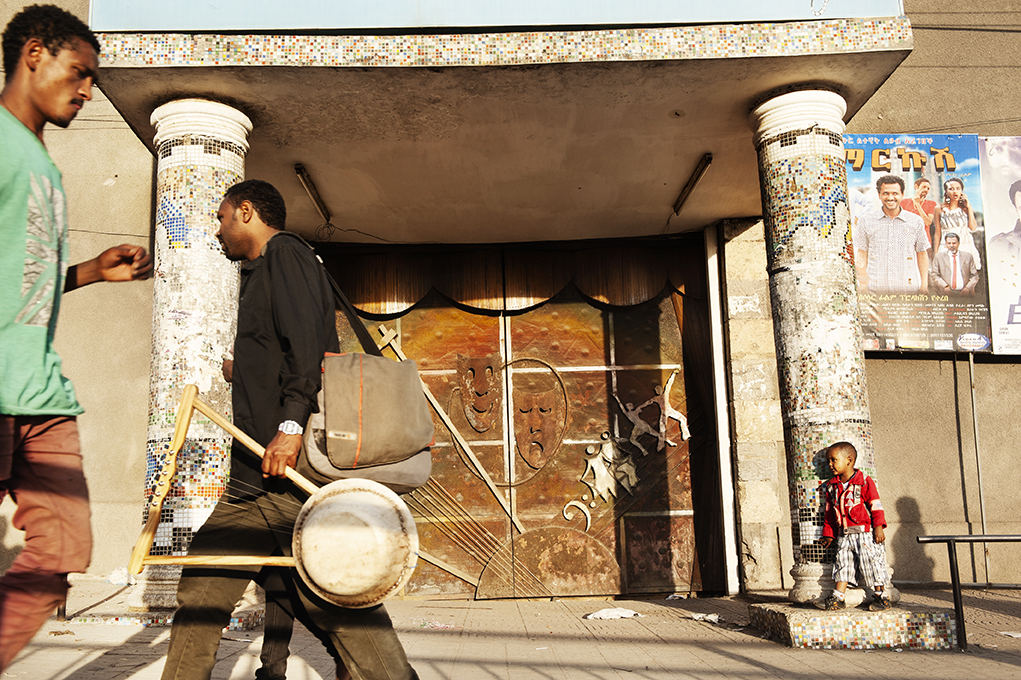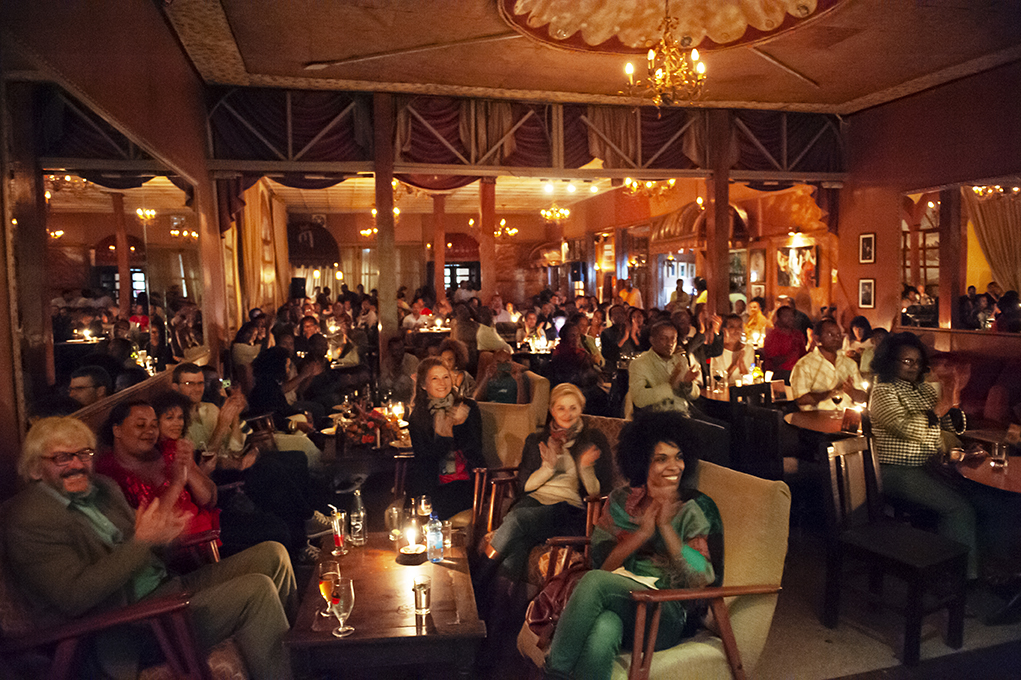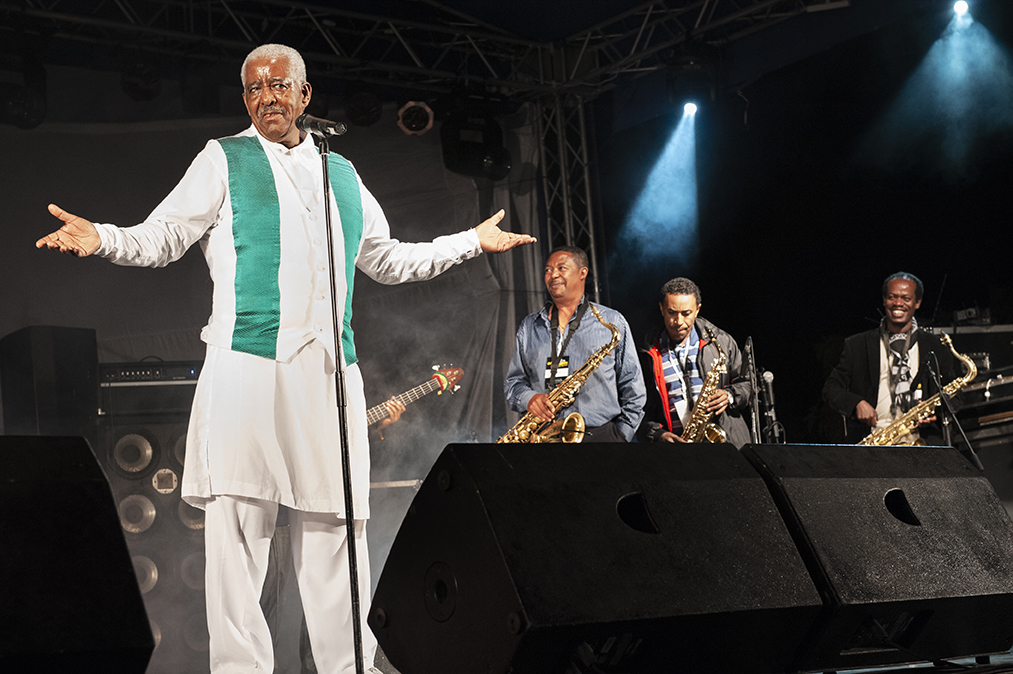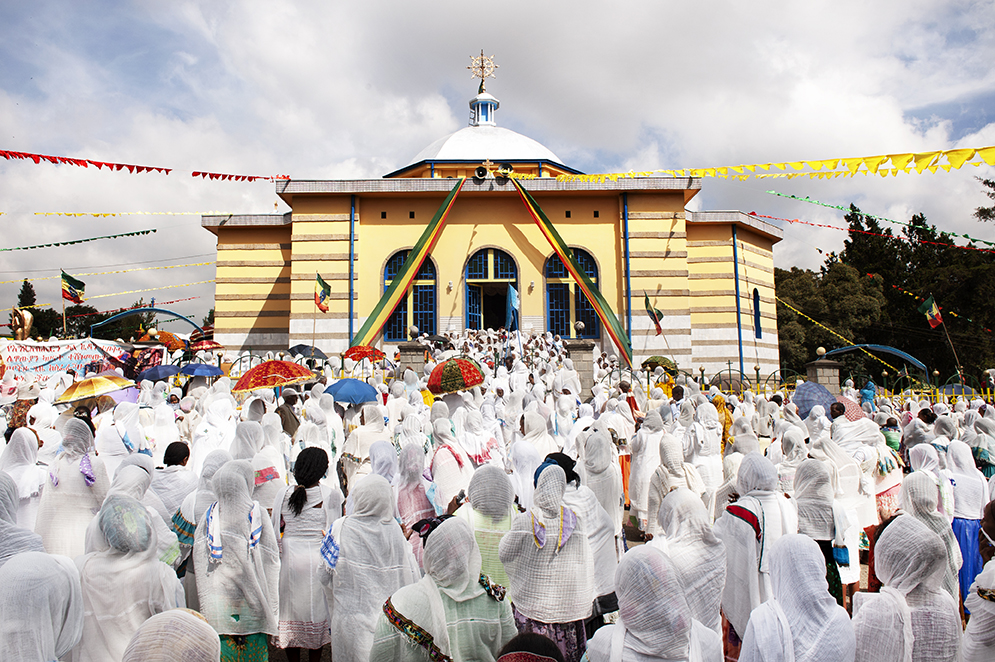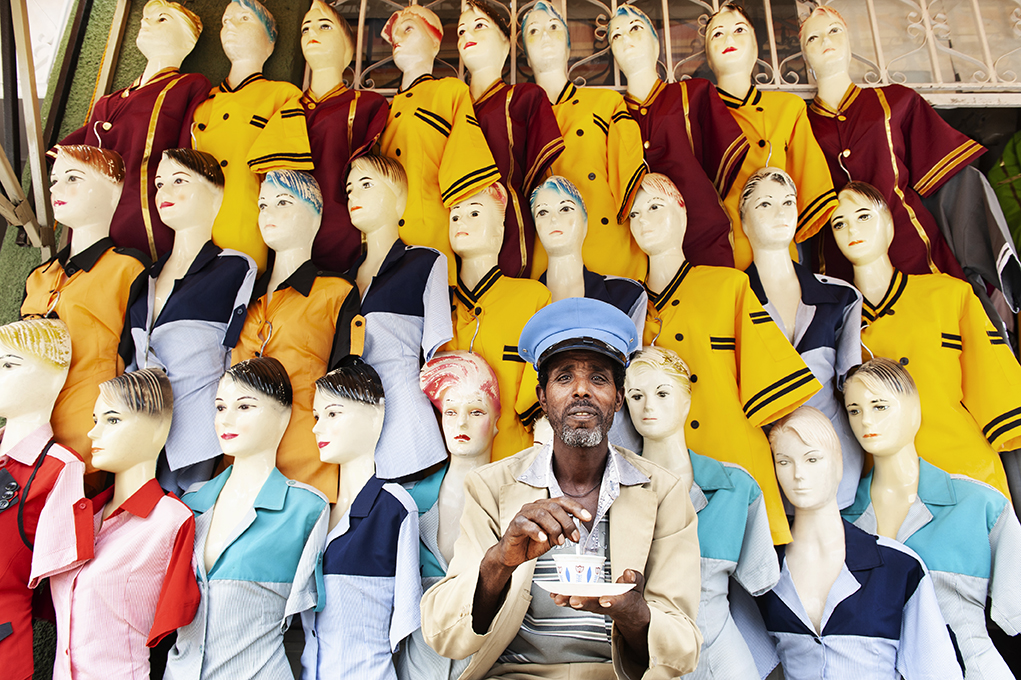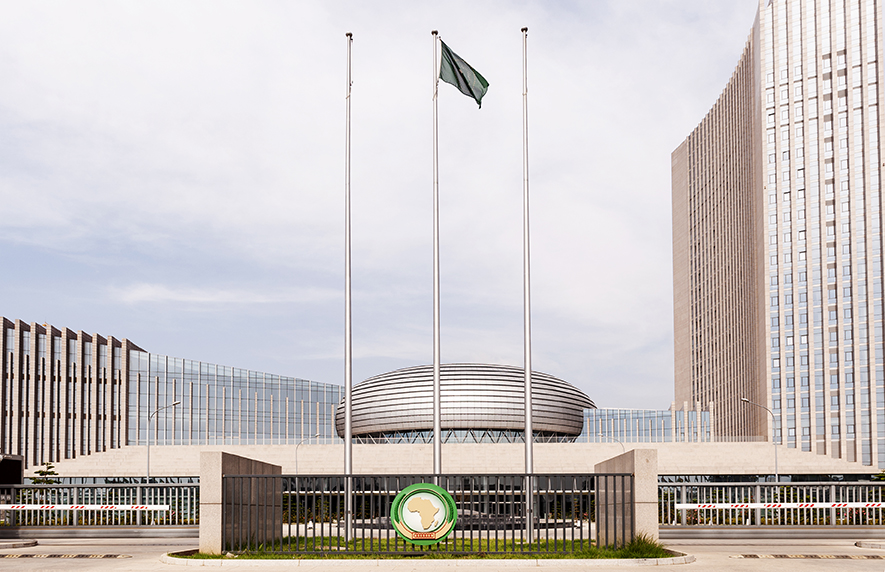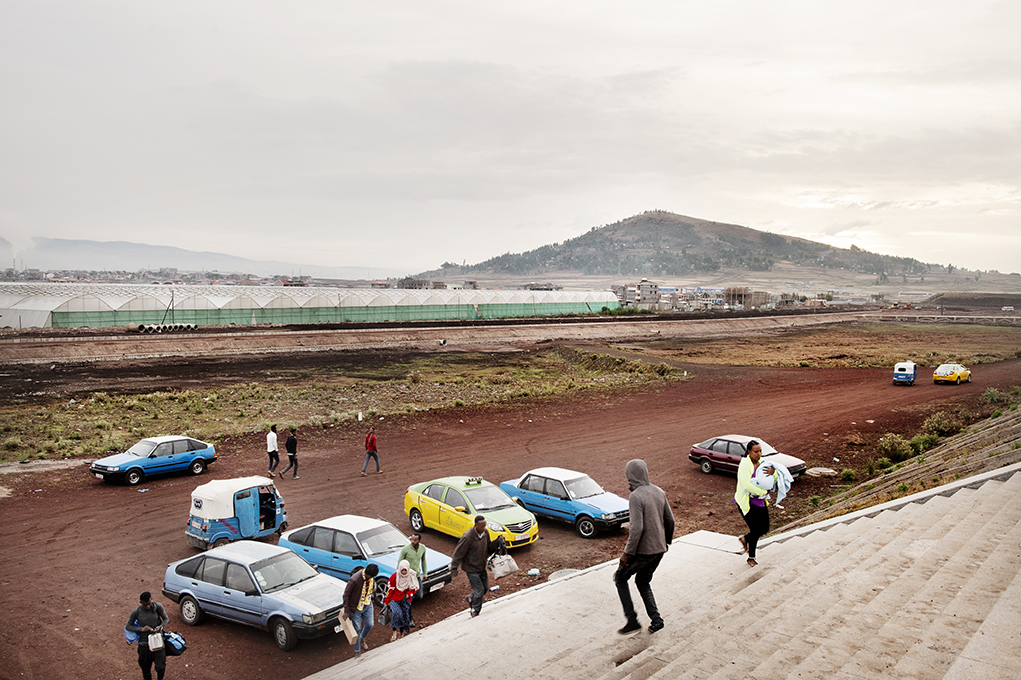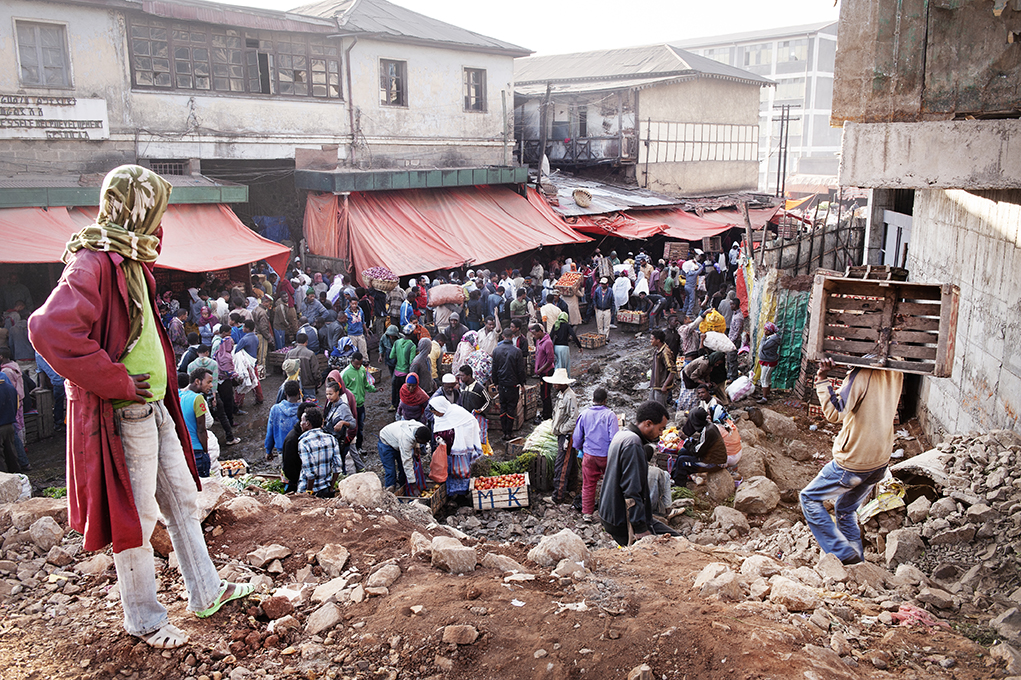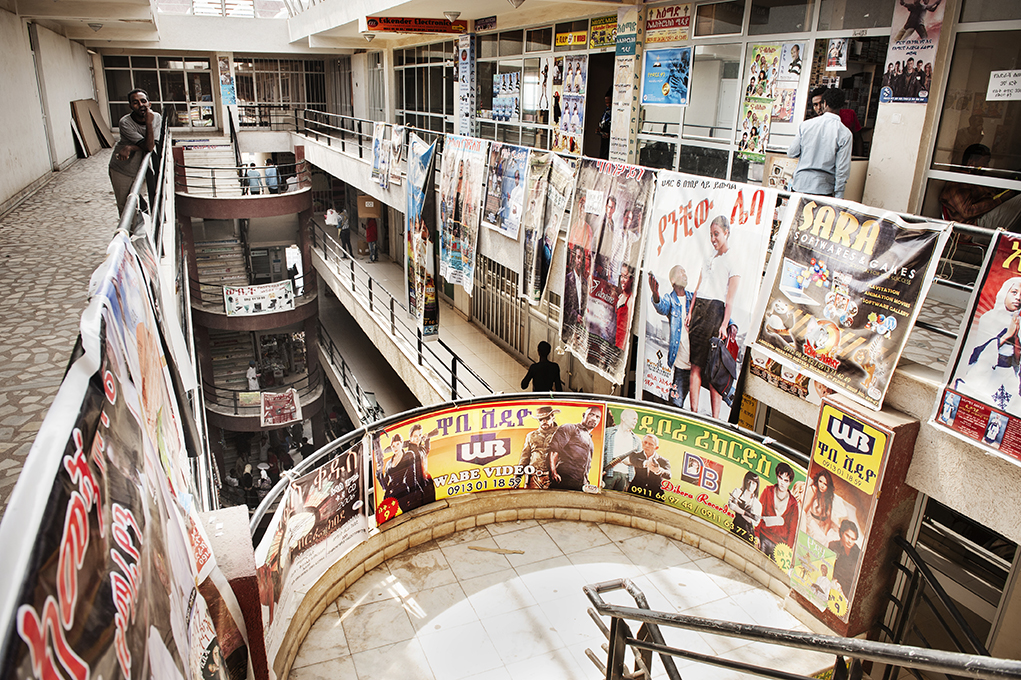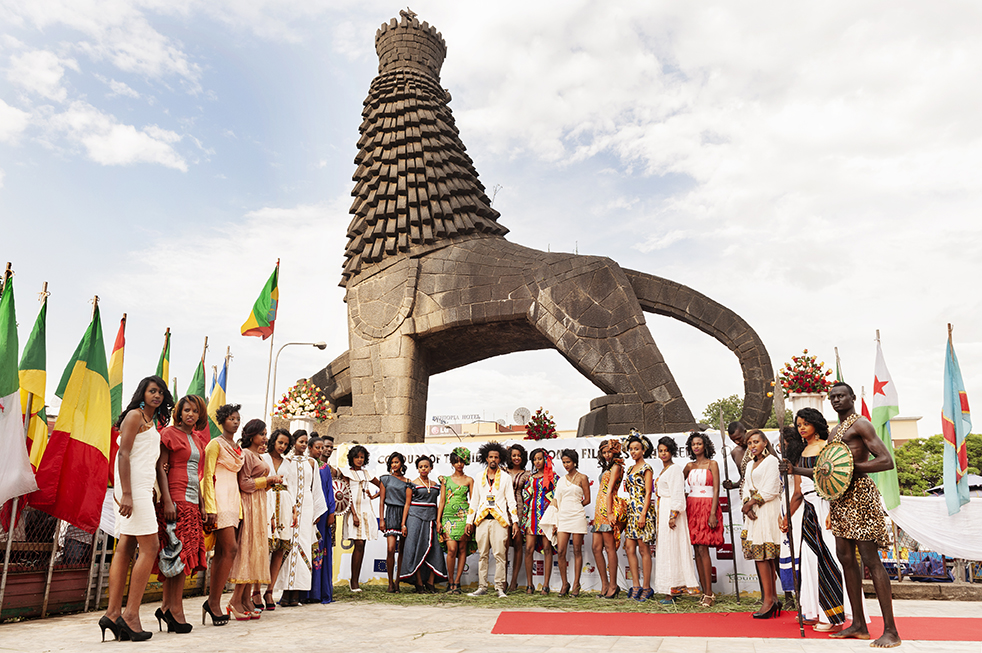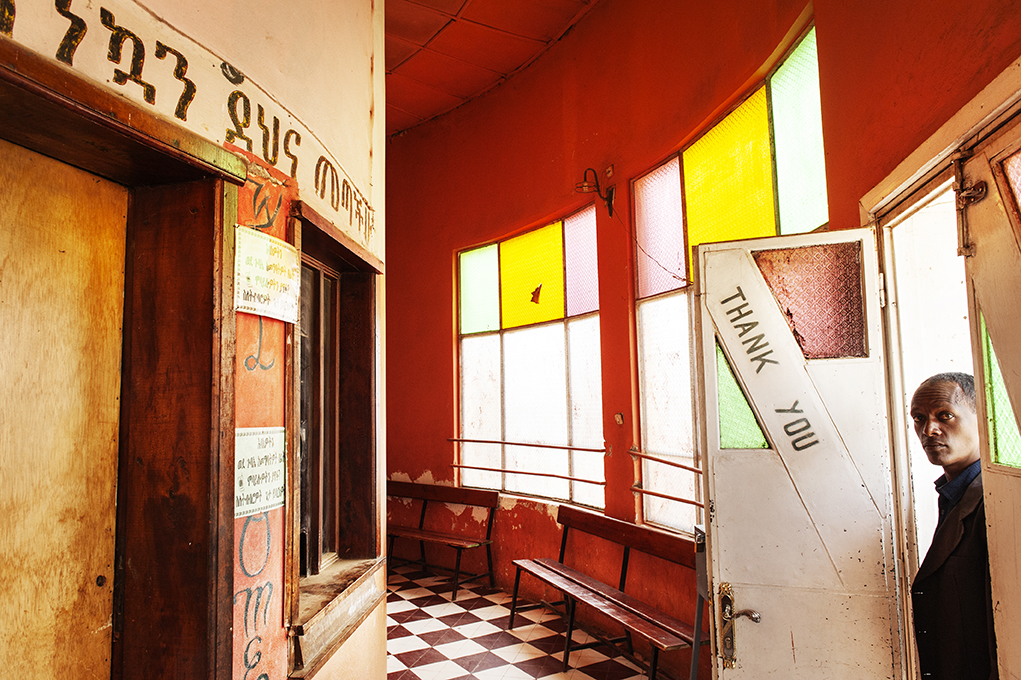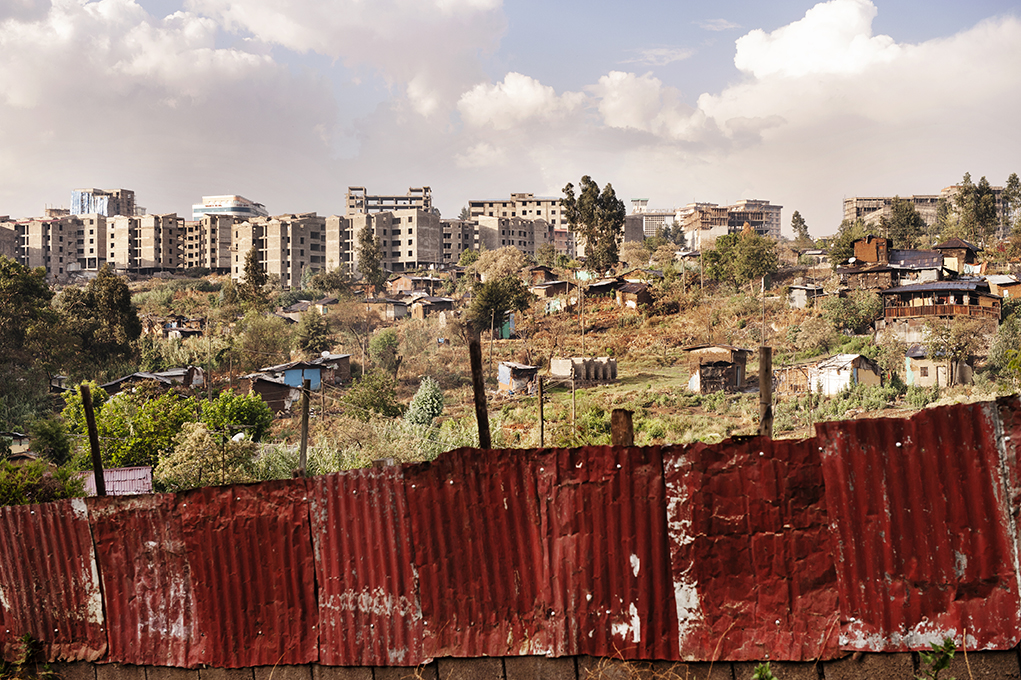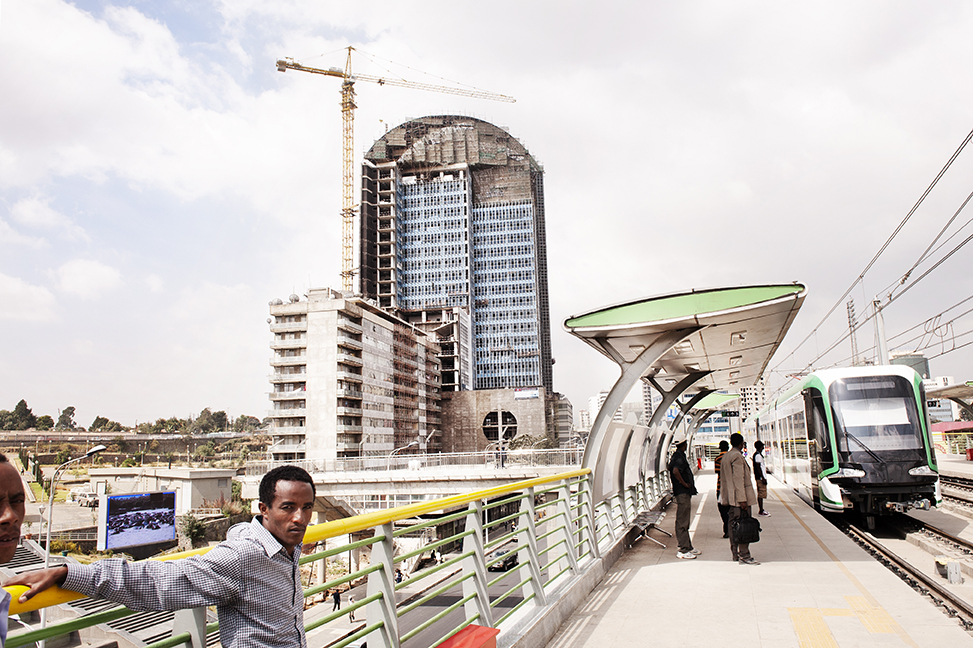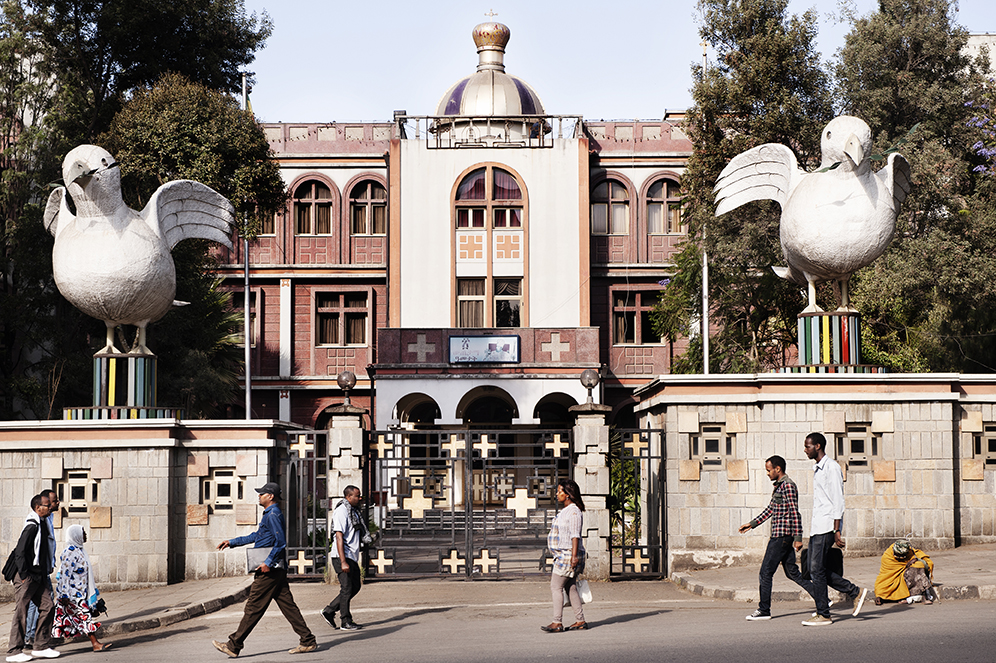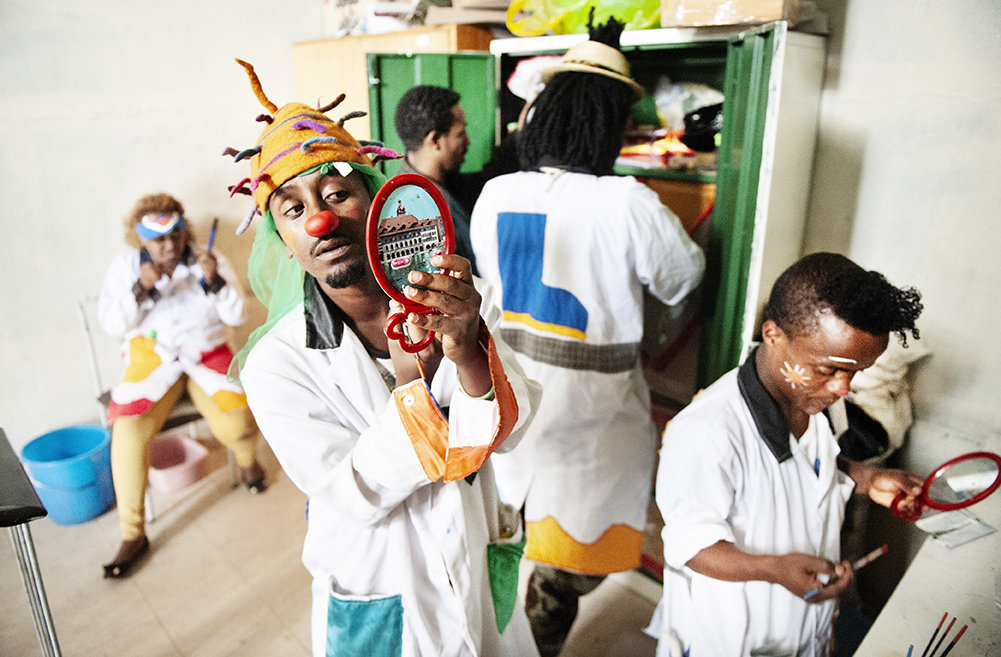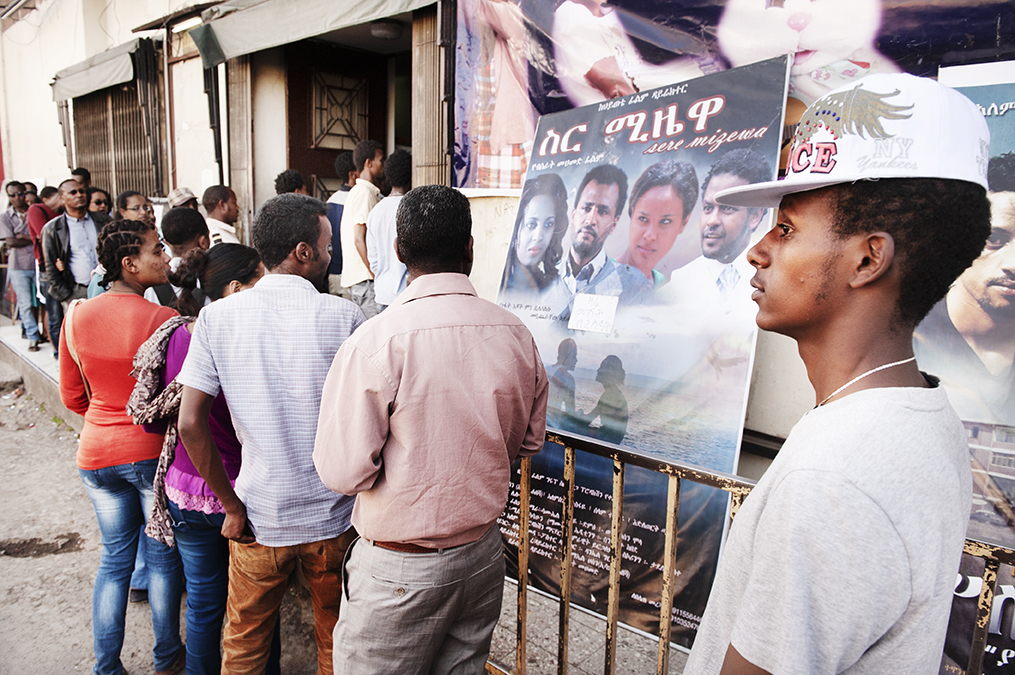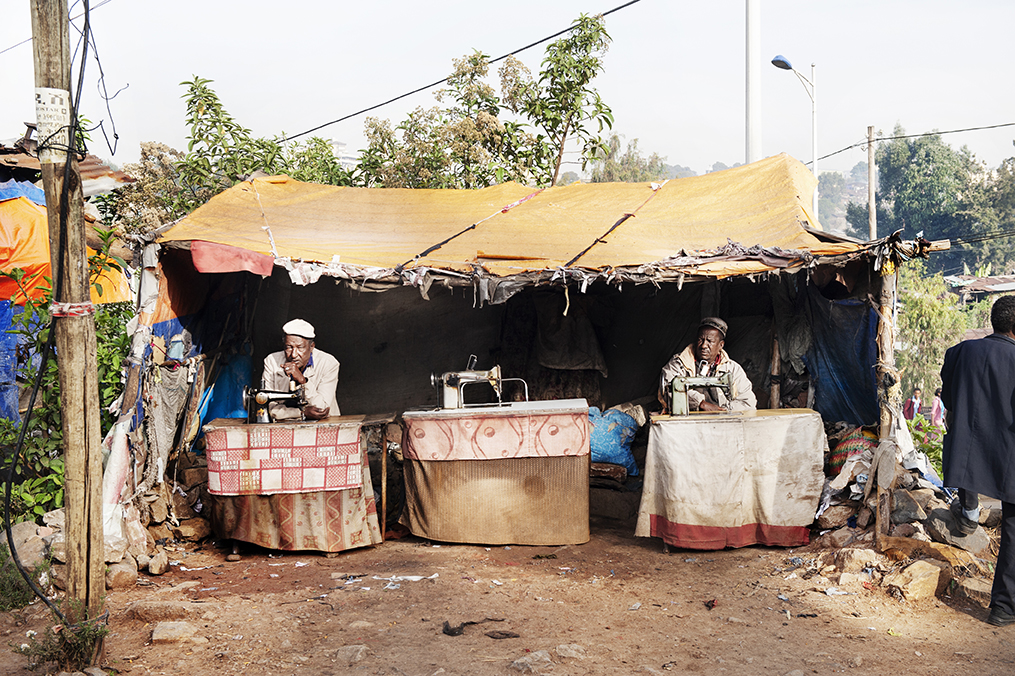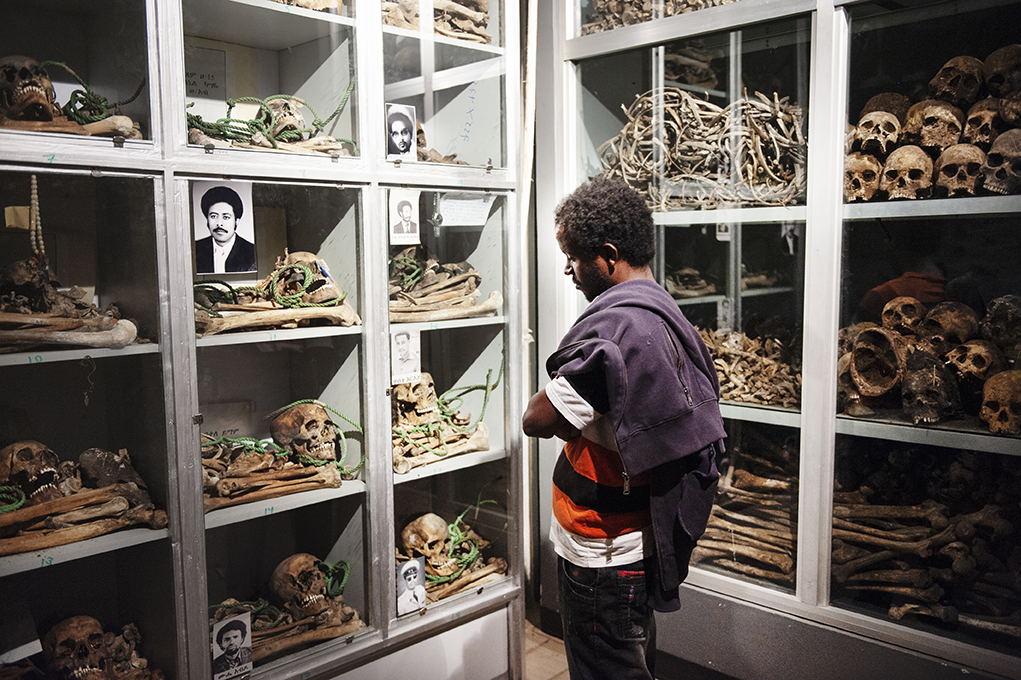Africa’s diplomatic capital and symbol of the African renaissance, Addis Ababa is living an extraordinary transformation. Included by New York Times and Lonely Planet in the list of the world’s most interesting cities to visit thanks to its vibrant cultural scene, the “swinging Addis” is evolving at a very fast pace, experiencing a stable economic growth and a massive urban expansion. The “forest city” founded by Emperor Menelik II has developed to a modern “concrete jungle”. As new concrete-and-glass skyscrapers come up like mushrooms, the traditional neighborhoods made of wood and mud are blown down to make room for a new skyline worthy of a modern global capital. The City’s highway network grows larger and larger, while traffic increases dramatically. The light train line which recently came in operation seems not enough for counteracting the frenzy that has seized the city. Torn between great expectations in the “New” coming forth and bewilderment caused by the chaos growing all around, Addis’ inhabitants wait patiently and confidently for the dust of the city-yard to fade out and the train of modernity to allow them all get up. Will Ethiopia’s traditions and roots be strong enough to stand the impact of “Development”? Will the East Africa “peaceful island” resist notwithstanding the greater inequalities brought forth by economic growth?
Capitale diplomatica dell’Africa e simbolo del suo rinascimento, Addis Abeba vive una trasformazione straordinaria. Inserita da New York Times e Lonely Planet tra le città più interessanti da visitare al mondo per il suo vibrante panorama culturale, la “swinging city” vanta una crescita economica costante e un massiccio sviluppo urbano. La “città foresta” fondata dall’imperatore Menelik II è diventata una moderna “concrete jungle”. Nuovi grattacieli in vetro-cemento spuntano come funghi, mentre i tradizionali quartieri-villaggio fatti di baracche di legno, terra e paglia vengono rasi al suolo per lasciar spazio a una sky-line degna di una capitale globale. La rete autostradale è ogni giorno più vasta e trafficata, mentre la metropolitana di superficie appena entrata in funzione non sembra sufficiente ad arginare la frenesia che si è impossessata della città. Combattuti tra l’entusiasmo per il nuovo che avanza e lo sconcerto per il caos che li circonda, gli abebini attendono con pazienza e fiducia che la polvere della città-cantiere si diradi e il treno splendente della modernità faccia salire a bordo finalmente anche loro. Tradizioni e radici saranno abbastanza forti da reggere all’impatto di un progresso dalla lingua biforcuta? L’isola di pace dell’Africa orientale terrà nonostante la crescente disparità finanziaria che sta accompagnando la crescita economica?
